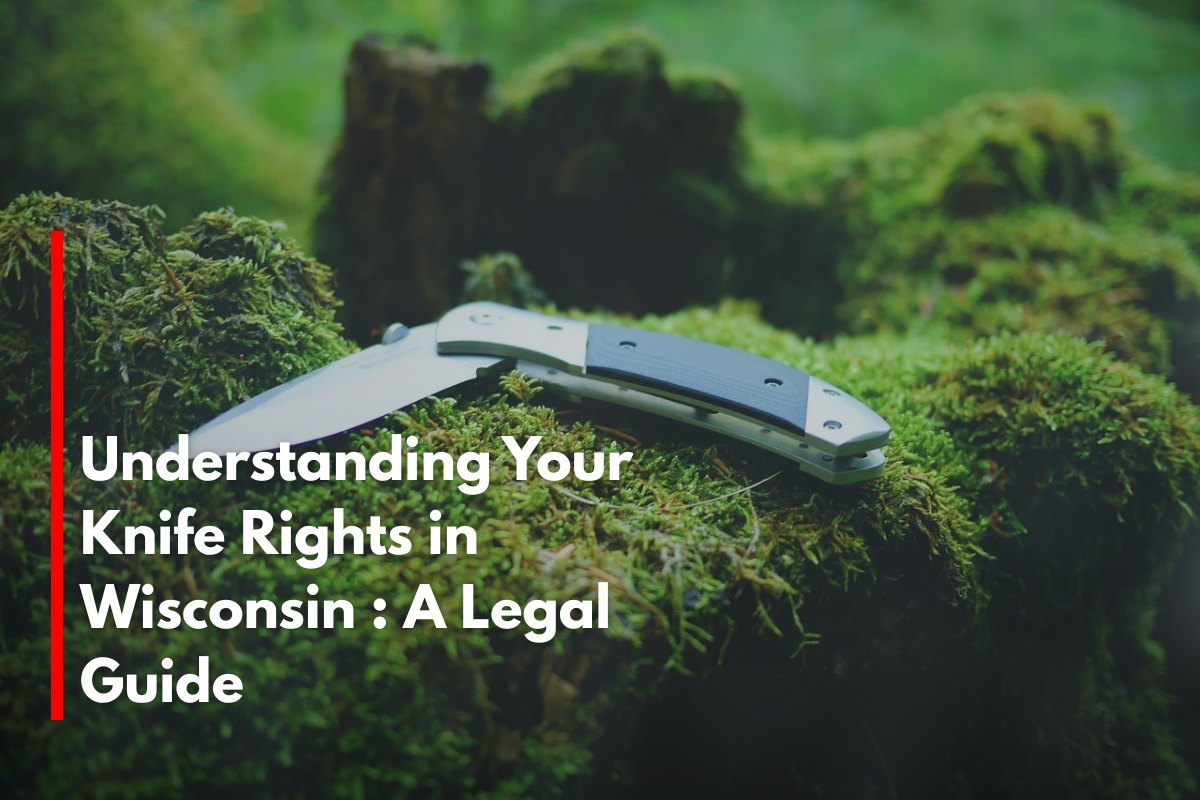Knives are essential tools for many Wisconsinites, whether for work, recreation, or self-defense. However, understanding your rights and responsibilities regarding knife ownership and carry in Wisconsin is crucial to avoid legal trouble. This guide provides a clear overview of the current laws as of 2025.
Are Knives Legal in Wisconsin?
Yes, knives are legal in Wisconsin. There are no statewide restrictions on the type, blade length, or style of knife you may own or carry, whether openly or concealed. This includes switchblades, butterfly knives, automatic knives, and other previously restricted types.
Key Points:
- No blade length limits: There are no legal restrictions on blade length for knives in Wisconsin.
- All knife types allowed: Switchblades, ballistic knives, and other automatic knives are legal to possess and carr.
Concealed Carry and Open Carry
- Open carry: You may openly carry any legal knife in most public places.
- Concealed carry: Most people may carry knives concealed, regardless of type or size. This includes pocket knives, fixed-blade knives, and even swords.
Exception: Prohibited Persons
If you are prohibited from possessing a firearm (such as convicted felons, those under certain restraining orders, or with specific mental health adjudications), you cannot legally carry a concealed knife that qualifies as a “dangerous weapon.” Violating this law is a Class A misdemeanor, punishable by up to 9 months in jail and/or a $10,000 fine.
Where Can You Carry a Knife?
While Wisconsin grants broad rights to knife owners, there are important location-based restrictions:
| Location | Can You Carry a Knife? |
|---|---|
| Public places | Yes |
| Schools (K-12) | No, knives are prohibited |
| Government buildings | Usually prohibited |
| Private property | Subject to property owner’s rules |
Schools: Possession of knives on school property is strictly forbidden and can result in felony charges.
Government buildings: Local governments may restrict knives in courthouses or similar facilities.
Statewide Preemption
Wisconsin has a statewide preemption law for knives. This means that no city, county, or municipality can enforce knife laws stricter than state law. All local ordinances must align with state statutes, ensuring uniformity across Wisconsin.
Minors and Knife Possession
It is illegal to transfer a “dangerous weapon,” which may include certain knives, to anyone under 18. Minors should exercise caution and consult local statutes before carrying knives, especially in public or at school.
Disorderly Conduct and Intent
Carrying a knife, even concealed, is not grounds for a disorderly conduct charge unless accompanied by criminal or malicious intent. Merely possessing a knife is not a crime in itself.
Best Practices for Knife Owners
Know your status: If you are prohibited from owning firearms, do not carry concealed knives.
Avoid restricted locations: Never bring knives to schools or government buildings.
Respect private property: Always follow the rules set by property owners.
Stay informed: Laws can change, so periodically check for updates.
Wisconsin’s knife laws are among the most permissive in the United States, offering broad rights to law-abiding citizens. By understanding and respecting the few restrictions that exist—particularly regarding prohibited persons and restricted locations—you can confidently exercise your knife rights in Wisconsin.
Sources
[1] https://www.grievelaw.com/WisconsinGun/Concealed/Knife
[2] https://milwaukee-criminal-lawyer.com/wisconsin-knife-laws-2023/
[3] https://www.wisbar.org/NewsPublications/WisconsinLawyer/Pages/Article.aspx?Volume=94&Issue=7&ArticleID=28509
[4] https://ravencresttactical.com/wisconsin-knife-laws/
[5] https://nobliecustomknives.com/us-knife-laws/wisconsin-knife-laws/











